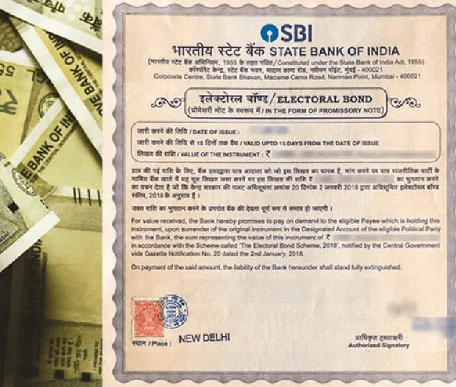
Table of Contents
Introduction of Electoral Bonds: Reforming Political Funding
The introduction of electoral bonds in India in 2017 aimed to reform political funding and enhance transparency within the electoral process. This system allows individuals and corporate entities to purchase bonds and donate them to political parties of their choice. The primary feature of electoral bonds is the anonymity they afford to donors, purportedly to protect them from potential reprisals or undue influence.
Concerns Surrounding Transparency: Veil of Anonymity
Despite the intentions behind electoral bonds, concerns have emerged regarding the lack of transparency they introduce into the political funding landscape. The anonymity provided by electoral bonds prevents the public from knowing the identity of donors, raising questions about accountability and the public’s right to information regarding the financial backers of political parties.
Potential for Misuse and Abuse: Threat to Democratic Integrity
The opacity surrounding electoral bonds has fueled apprehensions about the potential for misuse and abuse of the system. Critics argue that the anonymity facilitated by electoral bonds may enable illicit or unaccounted funds to flow into political parties, posing a serious threat to the integrity of the electoral process and undermining the principle of fair competition among political parties.
Disclosure Requirements: Lack of Transparency in Political Funding
Unlike other forms of political funding, electoral bonds do not require political parties to disclose the identity of donors, further exacerbating concerns about transparency and accountability. This lack of disclosure makes it challenging to track the flow of money into politics and may facilitate the influence of vested interests or corporate entities over the political process.
Dominance of Corporate Interests: Accountability to the Electorate
The dominance of corporate interests in political funding, facilitated by electoral bonds, raises significant questions about the accountability of elected representatives to the electorate. When political parties rely heavily on corporate donations, there is a risk that they may prioritize the interests of their wealthy donors over those of the general public, undermining democratic representation and governance.
Judicial Scrutiny: Constitutional Validity of Electoral Bonds
The issue of electoral bonds has come under judicial scrutiny, with several public interest litigations (PILs) challenging their constitutional validity. Petitioners argue that electoral bonds violate the principles of free and fair elections by allowing for anonymous and opaque political funding. The Supreme Court’s intervention in this matter will be crucial in determining the future of electoral bonds and their impact on Indian democracy.
International Comparison: Transparency in Political Funding
Electoral bond systems have been implemented in other countries as well, albeit with varying degrees of transparency. By comparing international practices, India can draw insights into potential reforms to enhance transparency and accountability within its own electoral funding system.
Public Awareness and Engagement: Strengthening Democratic Participation
Increased public awareness and engagement on the issue of electoral bonds are essential for fostering transparency and accountability in political funding. Civil society organizations, media outlets, and advocacy groups play a crucial role in educating the public about the implications of electoral bonds and advocating for reforms to strengthen democratic governance
Political Will and Reform Initiatives: Addressing Loopholes
Political will and bipartisan cooperation are vital for implementing meaningful reforms to address the loopholes and shortcomings of the electoral bond system. By prioritizing transparency and accountability in political funding, policymakers can restore public trust in the democratic process and uphold the principles of democratic governance.
Conclusion: Upholding Democratic Principles
In conclusion, the introduction of electoral bonds in India has raised complex issues regarding political funding, transparency, and democratic governance. While proponents argue for their legitimacy and privacy protection, critics raise valid concerns about transparency, accountability, and the integrity of the electoral process. As the debate continues, it is essential to address these concerns and uphold the principles of democracy to maintain trust in the electoral system.
To know about lok sabha 2024 election schedule visit – Loksabha election schedule
For more information – Visit Election commission of India


